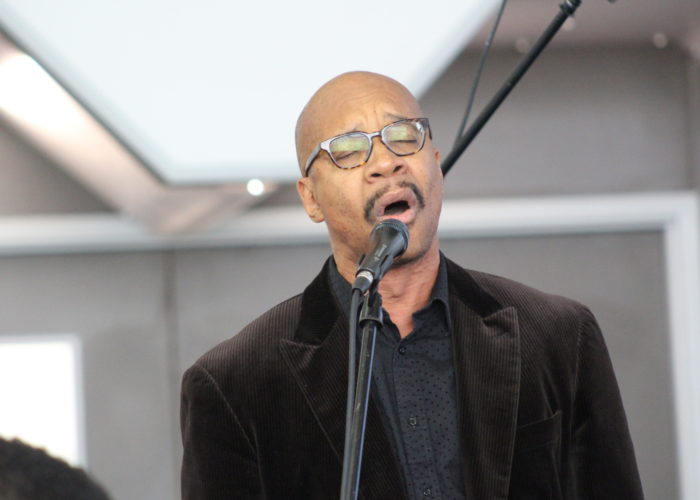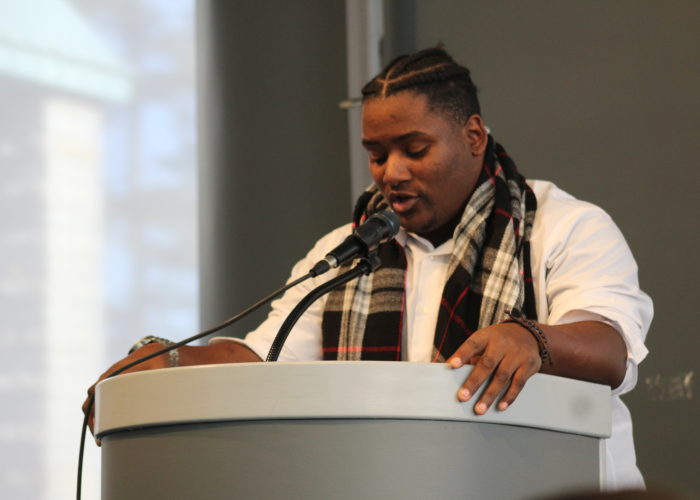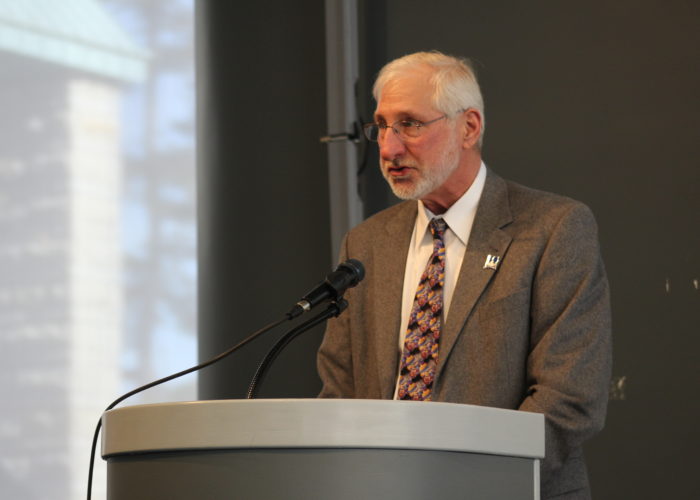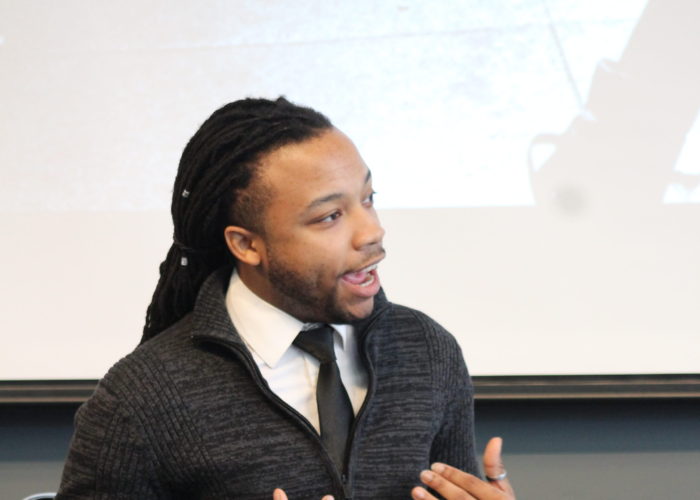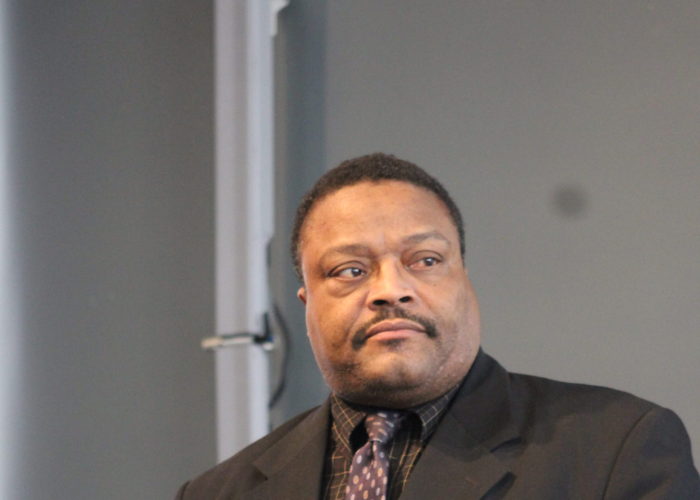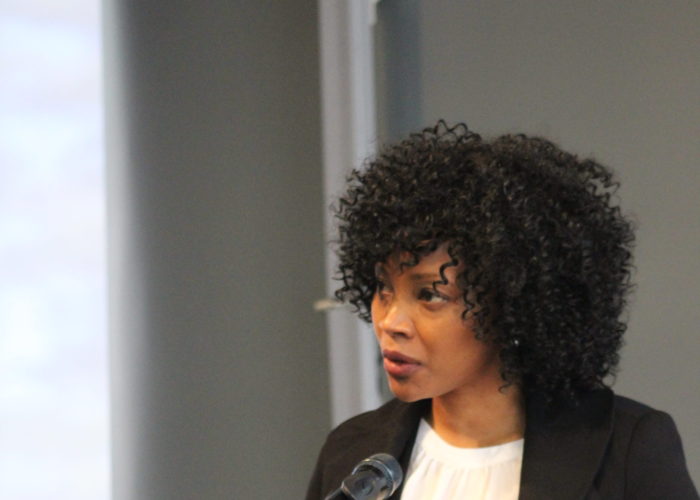Stephanie Larson
Writer
slarson@lc.edu
Lewis & Clark hosted a commemoration of the life of Dr. Martin Luther King, Jr. on Jan. 19.
“We hope that the performances of Dr. Martin Luther King’s words will serve as a call to action for each of us to be champions of justice, equality, and love for all,” said event organizer Dr. Mumba Mumba in her introductory remarks.
During the one-hour commemoration, faculty and students read several speeches given by Dr. King in their entirety. These included his “Give Us the Ballot” address and a eulogy given for four girls killed in the bombing of 16th Street Baptist Church in Birmingham, Alabama.
The event also featured an excerpt from the play “Freedom Riders” and two performances by a gospel choir specially organized for this event and directed by Brenda Lancaster. Dr. Mumba Mumba, Peter Hussey, and Jen Kline worked with Lewis & Clark’s Diversity Council to organize the commemoration, which was held in Trimpe Hall.
One highlight of the event was special guest D.C. Cooper’s performance of Dr. King’s “I Have A Dream” address, a speech which he has performed in many different settings.
“Through the years so many people have said that they’ve only heard the part of the speech where he says ‘I have a dream,’ but many people share with me that they have never heard the speech in its entirety,” said Cooper. “So I would like to hope that they have the opportunity to hear the speech within its full context so they can understand the significance of the speech. I think it’s particularly important to recognize that the speech has been considered by scholars to be perhaps the greatest speech of this past century.”
When asked how the speeches to be read were selected, event organizer Dr. Mumba said, “If you look at the agenda you can see that there’s a theme we’re following. We look at the chronology and it gives us an idea of what was actually happening during that time. (…) And for some people, I said ‘You are faculty, you can decide what you speak,’ but I highlighted based on the key lessons I thought we should take up from each speech.”
So what lessons can we take up from Dr. Martin Luther King, Jr.? “The nonviolence movement, which was pretty interesting in my opinion because think about it, you’re getting shot, you’re being bitten but you cannot respond in a violent manner,” said Dr. Mumba. “So those values have an enduring effect in my opinion. They never go out of season. Those are lessons that we have to be reminded of constantly so that when faced with injustice, we can call it out.“



